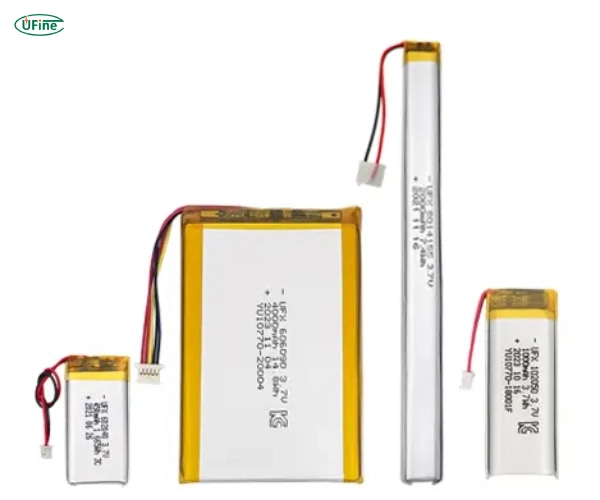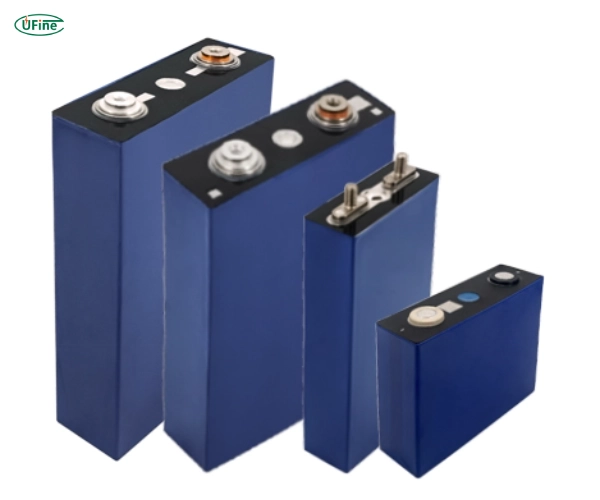
What is the distinction between soft-pack and hard-pack lithium batteries? Let’s break it down. We’ll examine soft-pack lithium batteries, including their composition and critical features. Next, we’ll move on to hard-pack lithium batteries, exploring their characteristics and typical uses. By the end, you’ll have a solid grasp of the differences between these two types of batteries.
Part 1. Soft-pack lithium batteries
Soft-pack lithium batteries, also known as pouch cells, are a type of rechargeable battery characterized by their flexible and lightweight packaging. Unlike traditional cylindrical or prismatic batteries, soft pack batteries feature a thin, pouch-like structure that offers design flexibility and portability advantages.
Composition:
- Flexible Pouch: The pouch, made of materials such as aluminum or polymer, serves as the outer packaging for the battery. Its flexibility allows for custom shapes and fitting into tight spaces.
- Lithium-Ion Cells: Enclosed within the pouch are lithium-ion cells, the heart of the battery. These cells consist of positive and negative electrodes separated by an electrolyte solution.
- Electrolyte Solution: The electrolyte solution facilitates ion conduction between the electrodes, enabling the flow of electric current during charging and discharging.
Key Features:
- Flexibility: Soft-pack batteries can be designed in various shapes and sizes, making them suitable for a wide range of applications where space is limited.
- Lightweight Design: Compared to traditional rigid batteries, the absence of heavy casing materials contributes to the lightweight nature of soft-pack batteries, which are ideal for portable electronics.
- Enhanced Safety: Soft pack batteries often incorporate safety features such as internal pressure relief valves and flame-retardant materials, reducing the risk of thermal runaway and fire hazards.
Advantages:
- They are lightweight and compact, making them suitable for portable devices.
- Flexibility in design allows for creative integration into products with unique shapes.
- They are generally safer than hard-pack batteries because they can withstand physical stress without rupture.
Disadvantages:
- Vulnerable to punctures and damage if mishandled, which can lead to electrolyte leakage or short circuits.
- Lower energy density compared to hard-pack batteries, limiting their capacity for storing energy.
- They are limited to smaller capacities due to the pouch design, restricting their use in high-power applications.
Common Applications:
- Mobile phones and smartphones
- Tablets and laptops
- Wearable devices such as smartwatches and fitness trackers
- Portable power banks for charging electronic devices on the go
Part 2. Hard-pack lithium batteries
Hard-pack lithium batteries, also known as prismatic batteries, are a type of rechargeable battery characterized by their rigid and rectangular-shaped packaging. Unlike soft-pack batteries, which feature flexible pouches, hard-pack batteries come in a sturdy casing that provides structural support and protection.
Composition:
- Rigid Casing: Typically made of aluminum or steel, the casing provides a rigid and protective enclosure for the battery cells.
- Prismatic Lithium Cells: Enclosed within the casing are prismatic lithium cells, which are rectangular and stacked together to form the battery pack.
- Separator and Electrolyte: Like other lithium-ion batteries, hard-pack batteries contain a separator and electrolyte solution that facilitates ion conduction between the electrodes.
Key Features:
- Structural Integrity: The rigid casing offers excellent structural integrity, protecting against physical damage and environmental factors.
- Efficient Space Utilization: Prismatic cells allow for efficient use of space within the battery pack, maximizing energy density and capacity.
- Improved Thermal Management: Hard-pack batteries often incorporate features for better thermal management, such as cooling fins or heat dissipation materials.
Advantages:
- It has enhanced durability and resistance to physical damage compared to soft-pack batteries.
- Higher energy density and capacity due to efficient space utilization within the battery pack.
- Improved thermal management capabilities, reducing the risk of overheating and thermal runaway.
Disadvantages:
- Less design flexibility than soft-pack batteries, limiting their suitability for specific applications.
- Heavier and bulkier than soft-pack batteries, which may affect portability in some cases.
- Typically, it is more expensive to manufacture than soft-pack batteries due to rigid casing materials.
Common Applications:
- Electric vehicles (EVs) and hybrid electric vehicles (HEVs)
- Stationary energy storage systems for renewable energy applications
- Medical devices requiring high reliability and durability
- Aerospace and aviation applications where safety and reliability are paramount
Part 3. Comparison between soft pack and hard pack lithium batteries
1. Flexibility vs. Rigidity
Soft-pack batteries are flexible, allowing for custom shapes and sizes. In contrast, hard-pack batteries have a rigid casing for structural support and protection.
2. Weight and Size
Soft-pack batteries are generally lighter and more compact, while hard-pack batteries are heavier and bulkier.
3. Energy Density
Soft-pack batteries have lower energy density due to packaging limitations. In comparison, hard-pack batteries achieve higher energy density through efficient space utilization.
4. Safety Features
Soft-pack batteries incorporate safety features like pressure relief valves and flame-retardant materials. In contrast, hard-pack batteries focus on improved thermal management.
5. Design Flexibility
Soft-pack batteries offer greater design flexibility and are suitable for products with unique shapes. In contrast, hard-pack batteries provide structural stability and efficient space use.
6. Cost
Soft-pack batteries are typically less expensive, with more straightforward materials and processes. In contrast, hard-pack batteries are more costly due to rigid casing materials and complex assembly.
7. Environmental Impact
Soft-pack batteries may be more environmentally friendly and potentially easier to recycle. In contrast, hard-pack batteries may have a larger environmental footprint due to less recyclable materials.
8. Application Suitability
Soft-pack batteries are ideal for consumer electronics and portable devices requiring flexibility. In contrast, hard-pack batteries suit critical applications like electric vehicles and renewable energy storage.
Part 4. FAQs
-
Which soft-pack or hard-pack lithium batteries are safer?
Soft-pack and hard-pack lithium batteries incorporate safety features. Still, soft-pack batteries are often considered safer due to their ability to withstand physical stress without rupture. However, proper handling and usage practices are essential for ensuring safety with any lithium battery. -
What factors should I consider when choosing between soft-pack and hard-pack batteries?
Considerations include application requirements (e.g., size, weight, energy density), budget constraints, and safety concerns. Soft-pack batteries are more suitable for portable electronics. In contrast, hard-pack batteries excel in demanding applications like electric vehicles and stationary energy storage. -
Are there any environmental considerations with lithium batteries?
Soft-pack and hard-pack lithium batteries can have environmental impacts, primarily related to the materials used in their construction and recycling processes. Soft-pack batteries may offer easier recycling due to pouch packaging. Still, proper disposal and recycling practices are essential to minimize environmental harm. -
Can I replace a soft-pack battery with a hard-pack battery in my device, or vice versa?
It depends on the device’s design and specifications. While some devices may allow for interchangeable battery types with appropriate modifications, others may have specific designs to accommodate only one type. Consult the device manufacturer or a qualified technician for battery compatibility and replacement guidance.
Related Tags:
More Articles

Differences Between Power Battery and Energy Battery
Compare power batteries and energy batteries by performance and applications in EVs, energy storage, and industrial systems.
Mechanical Battery: Exploring Energy Storage Solutions
Learn what a mechanical battery is, how it works, and how it compares to lithium batteries in efficiency, lifespan, cost, and uses like grid storage and EVs.
Are Tesla Batteries Bad for the Environment?
Are Tesla batteries bad for the environment? This lifecycle analysis covers lithium mining, battery production, emissions, recycling, and sustainability.
What Is a 12V Lithium Battery? Specifications, Uses, and How to Choose the Right One
Learn what a 12V lithium battery is, its specifications, lifespan, applications, and how to choose the right one for solar, RV, marine, and more.
Maximize 3S LiPo Battery Life: LiPo, Li-ion & 18650 Tips
Prevent overheating, short circuits, and low runtime. Learn expert strategies for 3S LiPo, Li-ion, and 18650 batteries in drones, RC cars, and portable devices.




